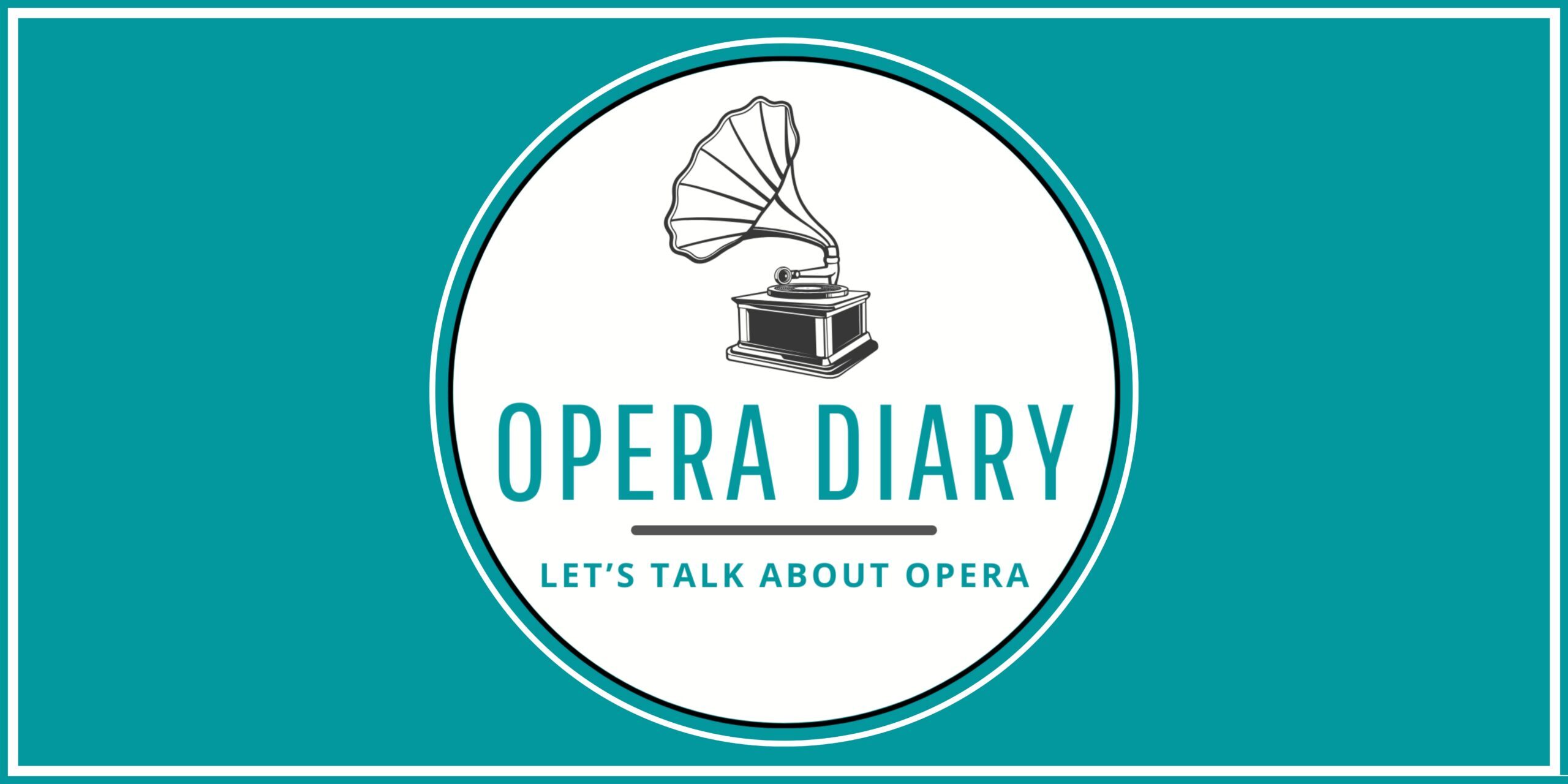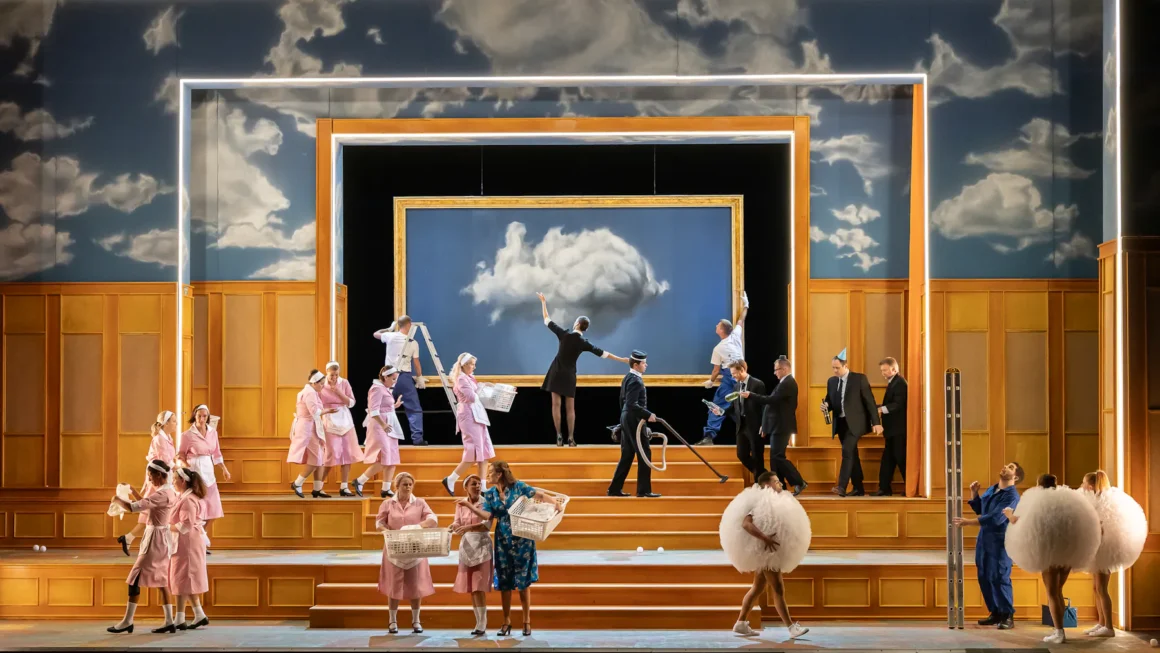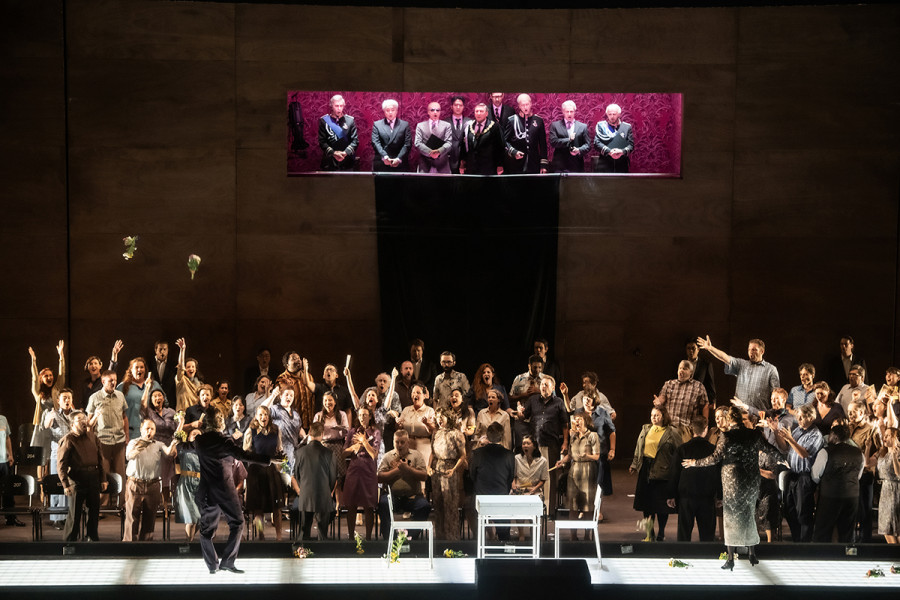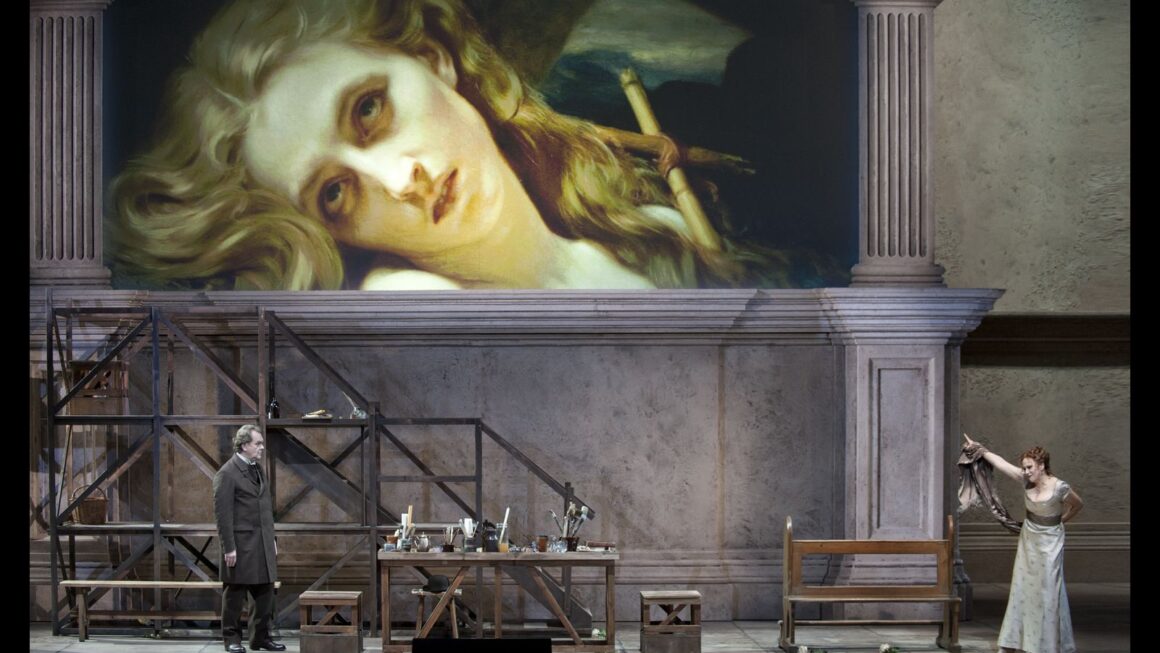Deutsche Oper has taken on the challenge of staging Die Frau ohne Schatten after a hiatus of several years. And let’s face it: the challenge was met! As one of several offerings in its Strauss-Zyklus, the Berlin opera house is giving its audiences the chance to discover lesser-performed works by the Bavarian composer. Although “Frosch” has become a more regular presence on the big stages in recent years, the exercise is always fraught with risk: subtle and complex libretto, demanding orchestration, the need for credible creativity on the part of the stage director who has in his hands a story whose stakes and values resonate less with today’s society than with that of yesteryear, a very large cast (not to mention the number of secondary characters)… Moreover, we know the reference to bear in mind: “(…) it would be to Die Zauberflöte what Der Rosenkavalier is to Le Nozze di Figaro” (letter from Hugo von Hofmannsthal to Richard Strauss, 20 March 1911). Alles ist gesagt! So, go to Bismarckstraße 35 and you’ll see that all this can be achieved with brio – a brio brimming with emotion.

An emotion initially fostered by Tobias Kratzer’s highly accessible and readable reading of the transposition to contemporary reality, raising a question that is as old as it is pertinent: must a couple’s fulfilment necessarily involve procreation? The quest for the shadow referred to in the score is converted into society’s oppressive pressure to be a mother: there is no salvation without offspring. It is here that we see that the director takes a (thoughtful) distance from the original libretto, in order to attenuate the naivety and the Zaubermärchen atmosphere that we recognise in the work, and to invite the spectator to reflect on the subject of the notion of marital happiness.

The rest is a question of a brilliant cast. Clay Hilley’s, full Wagnerian power, is at the service of a Kaiser deeply troubled by the conflicts of his marriage (and those that arise from it… or are they the cause of the problems?) with Daniela Köhler’s Kaiserin. Her Falke, Falke, the wierdergefundener in Act 2 is a lasting memory, carried by this Heldentenor with a strength shaken by the various questions that run through the character. And what can be said of the crystalline quality of her partner’s voice throughout Act 3? With what fragility she delivers a Vater, bist du’s? that evolves into her rebellion, wrapped in a crescendo of lyrical exaltation, and bursts into Zeige dich, Vater! Mein richter, hervor! So far, we’ve appreciated the full range of possibilities this dramatic soprano is capable of displaying, from her entrance on stage in Act 1, where she is accompanied by the excellent Marina Prudenskaya as Amme. Her Nurse is the very embodiment of a bourgeoisie we abhor, and when we know all the spells she is capable of (at no point do we feel even an ounce of humanity in this oh-so-caricatured character), we are delighted to listen to this mezzo forge her interpretation with bewitching blows. Humanity is to be found in Catherine Foster’s Frau, and even more so in her husband, Jordan Shanahan’s Barak. The former, Mrs Everywoman, possesses vocal resources as wide-ranging as the fresco of feelings that inhabit her. Many tears were shed during the immense confrontation with Barak at the end of Act 2, with a sumptuous Barak, so töte mich, schnell! She assaults her husband while inflicting a torment on herself that her voice bears witness to. Jordan Shanahan, touchingly humble, deploys his round, velvety, enveloping voice to give birth to a character of warm ingenuity with which we identify. The remainder of the cast delivers exquisite moments, all participating with equal commitment in this excellent evening, with a special mention for Patrick Guetti’s Bote: so much vocal intensity and quality of articulation should soon lead this beautiful bass to the most coveted roles in the repertoire.

We have already had occasion to praise Sir Donald Runnicles’s conducting (DER ZWERG | Deutsche Oper Berlin). Time goes by and the quality of what comes out of the pit only increases: a complicity built up over several years of fruitful collaboration between a conductor who knows all the strengths of his musicians, who extracts the best they have to offer, and musicians who know they can trust the conductor who leads them to achieve marvels.
Casting: der Kaiser (Clay Hilley), die Kaiserin (Daniela Köhler), die Amme (Marina Prudenskaya), Barak, der Färber (Jordan Shanahan), die Frau (Catherine Foster), die Geisterbote (Patrick Guetti), der Einäugige (Philipp Jekal), der Einarmige (Padraic Rowan), der Bucklige (Thomas Cillufo), ein Hüter der Schwelle des Tempels (Hye-Young Moon), Erscheinung eines Jünglings (Chance Jonas-O’Toole), die Stimme des Falken (Nina Solodovnikova), eine Stimme von oben (Stephanie Wake-Edwards). Chor der Deutschen Oper Berlin. Orchester der Deutschen Oper Berlin. Cover photo credits: ©Matthias Baus.





I was there!